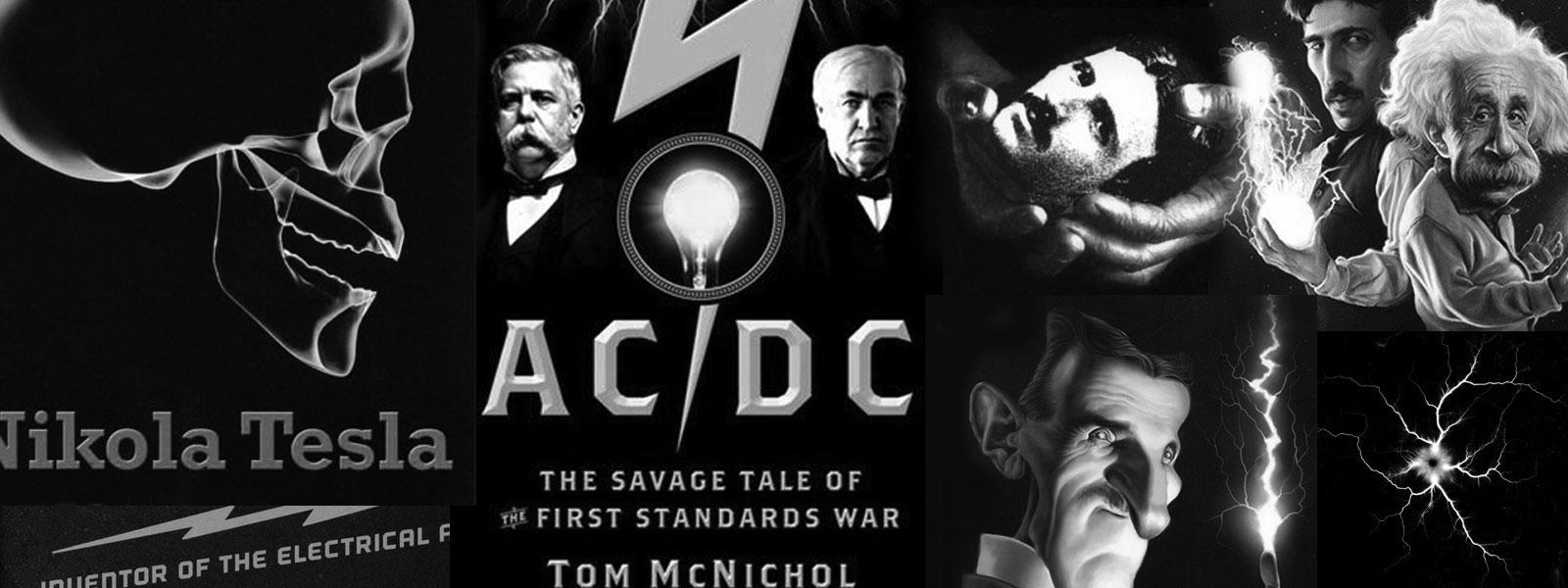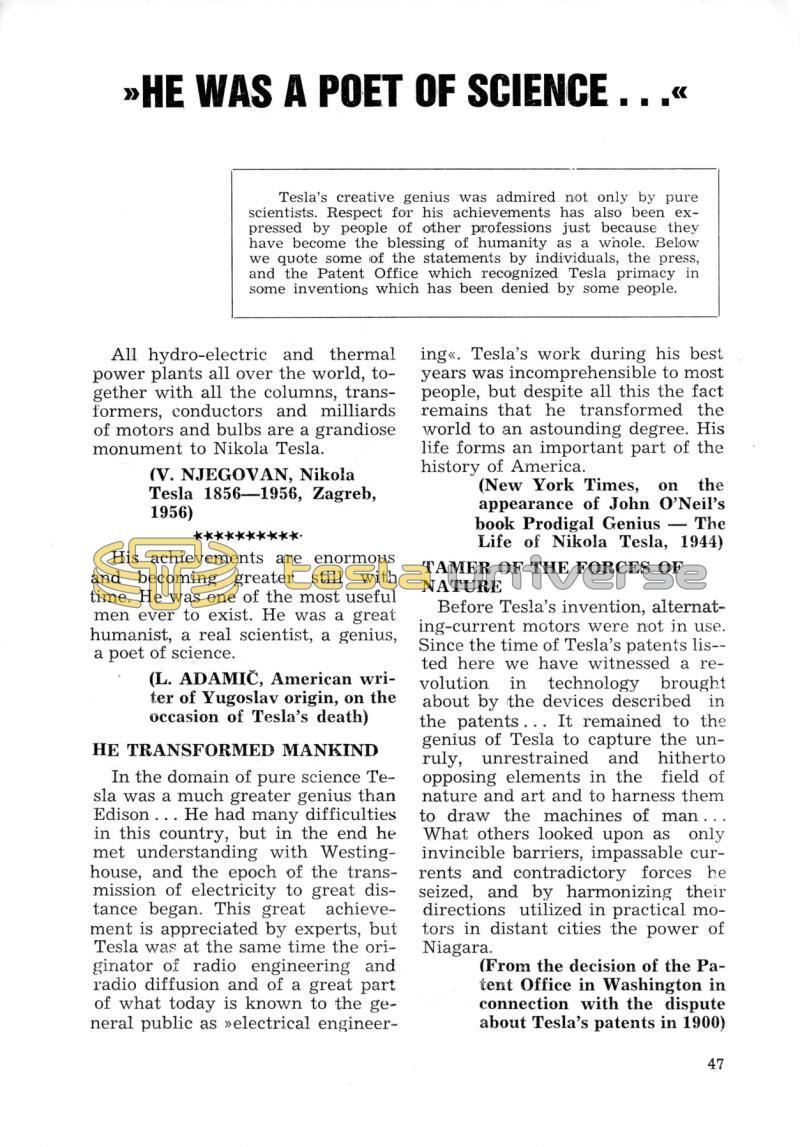
Nikola Tesla Books
"He Was a Poet of Science..."
Tesla's creative genius was admired not only by pure scientists. Respect for his achievements has also been expressed by people of other professions just because they have become the blessing of humanity as a whole. Below we quote some of the statements by individuals, the press, and the Patent Office which recognized Tesla primacy in some inventions which has been denied by some people.
All hydro-electric and thermal power plants all over the world, together with all the columns, transformers, conductors and milliards of motors and bulbs are a grandiose monument to Nikola Tesla.
(V. Njegovan, Nikola Tesla 1856-1956, Zagreb, 1956)
His achievements are enormous and becoming greater still with time. He was one of the most useful men ever to exist. He was a great humanist, a real scientist, a genius, a poet of science.
(L. AdamiÄ, American writer of Yugoslav origin, on the occasion of Tesla's death)
He Transformed Mankind
In the domain of pure science Tesla was a much greater genius than Edison ... He had many difficulties in this country, but in the end he met understanding with Westinghouse, and the epoch of the transmission of electricity to great distance began. This great achievement is appreciated by experts, but Tesla was at the same time the originator of radio engineering and radio diffusion and of a great part of what today is known to the general public as "electrical engineering". Tesla's work during his best years was incomprehensible to most people, but despite all this the fact remains that he transformed the world to an astounding degree. His life forms an important part of the history of America.
(New York Times, on the appearance of John O'Neil's book Prodigal Genius - The Life of Nikola Tesla, 1944)
Tamer of the Forces of Nature
Before Tesla's invention, alternating-current motors were not in use. Since the time of Tesla's patents listed here we have witnessed a revolution in technology brought about by the devices described in the patents... It remained to the genius of Tesla to capture the unruly, unrestrained and hitherto opposing elements in the field of nature and art and to harness them to draw the machines of man... What others looked upon as only invincible barriers, impassable currents and contradictory forces he seized, and by harmonizing their directions utilized in practical motors in distant cities the power of Niagara.
(From the decision of the Patent Office in Washington in connection with the dispute about Tesla's patents in 1900)
